
Next week, 26th Feb, I am giving a lecture discussing my forthcoming book at Goldsmiths University, as part of their Visual Cultures programme. 5-7PM. Details at www.instagram.com/p/DUtQULJl63...
17.02.2026 09:30 — 👍 14 🔁 3 💬 1 📌 0
Next week, 26th Feb, I am giving a lecture discussing my forthcoming book at Goldsmiths University, as part of their Visual Cultures programme. 5-7PM. Details at www.instagram.com/p/DUtQULJl63...
17.02.2026 09:30 — 👍 14 🔁 3 💬 1 📌 0
Thanks to Centre de Cultura Contemporània de Barcelona (CCCB) and the CCCB Lab to once again give me space to experiment with unfinished thoughts and the possibility for politics otherwise: lab.cccb.org/en/to-refuse... (text also available in Catalan in the link)
10.12.2025 13:30 — 👍 2 🔁 1 💬 0 📌 0
Joshua Whitehead, Making Love with the Apocalypse: Oji-Cree Epistemologies and Indigiqueer Futurities. @usask.ca #FeministFuturities Speaker Series.
artsandscience.usask.ca/art/news/art....

"Using Marx’s theory of commodity fetishism, it thus contends that care ethics risks treating care as a fetish, obscuring the systemic inequalities and inherent contradictions embedded in caregiving." doi.org/10.1177/1464...
28.09.2025 23:43 — 👍 29 🔁 12 💬 1 📌 1
“Anti-technology extremism possesses a remarkable quality: flexibility. This characteristic enables it to unite disparate actors – such as anarchists and white supremacists – under a common banner.”
'Stop the Machines' by @maurolubrano.bsky.social is out today in the UK.
www.politybooks.com/...

Still buzzing after the largest PPSA/IRW in the organization's history - 230 participants! - held at the beautiful Banff Centre from 19-21 Sept. 2025.
We'll be sharing highlights from the weekend's events on our brand new Instagram, @prairiepolisci! Follow us and keep updated for 2026!

Jodi Byrd's introduction🔥 to their forthcoming book Indigenomicon now available to download!!! (Full book available in November!) www.dukeupress.edu/indigenomicon
21.08.2025 18:23 — 👍 12 🔁 6 💬 0 📌 0
I was invited onto my friend Mylan's epic Radicle Narrative podcast to speak on German 'Indianthusiasm,' its ties to ethnonationalism, settler/national identity re/construction and Indigeneity as political currency in Europe: open.spotify.com/episode/11rh...
27.07.2025 08:34 — 👍 20 🔁 8 💬 5 📌 1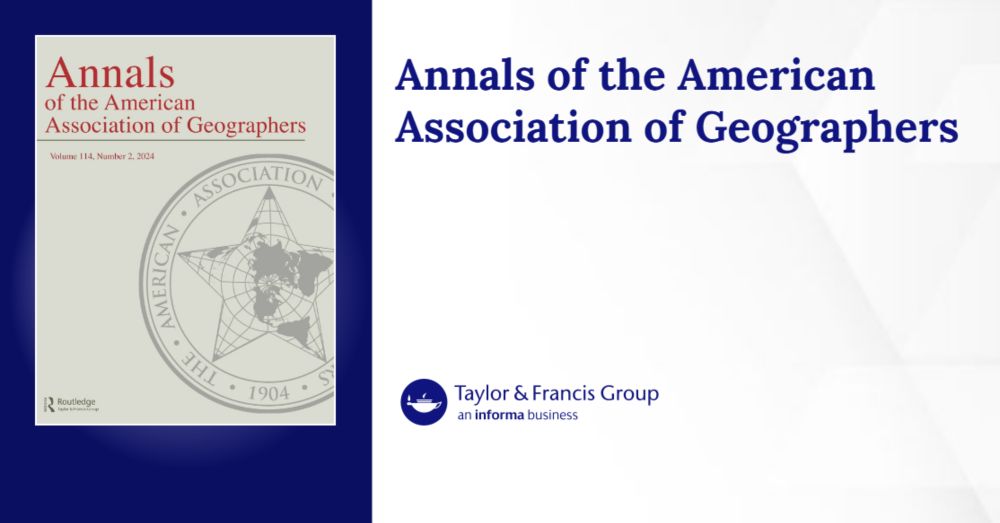
Excited to share that my article "(Re)Making Native Space: Locating Gendered Geographies of Law, Territoriality, and Dispossession in the Colonial Archive" is out today with the Annals of the AAG @geographers.bsky.social www.tandfonline.com/doi/full/10....
14.07.2025 23:13 — 👍 50 🔁 15 💬 2 📌 1I think part why we're seeing an infestation of scientific racism right now is that the obsession with value, metrics, and rankings has bled from business culture into popular culture and everyday life.
29.06.2025 16:02 — 👍 45 🔁 11 💬 5 📌 1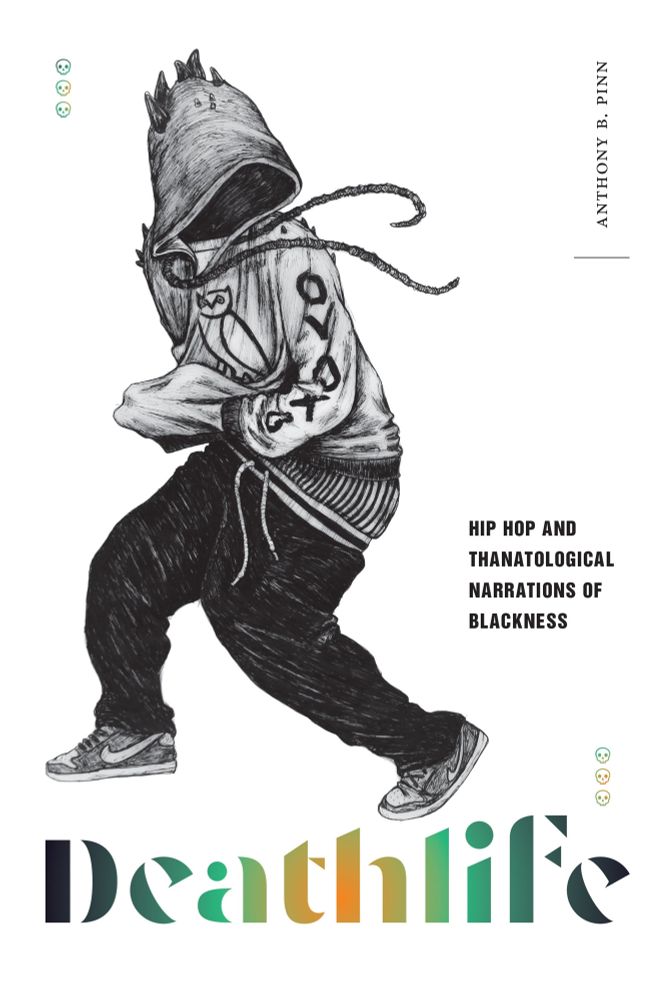
Great discussion of Anthony Pinn’s Deathlife for #BlackAnthropoceneWorkingGroup.
20.06.2025 20:37 — 👍 1 🔁 0 💬 0 📌 0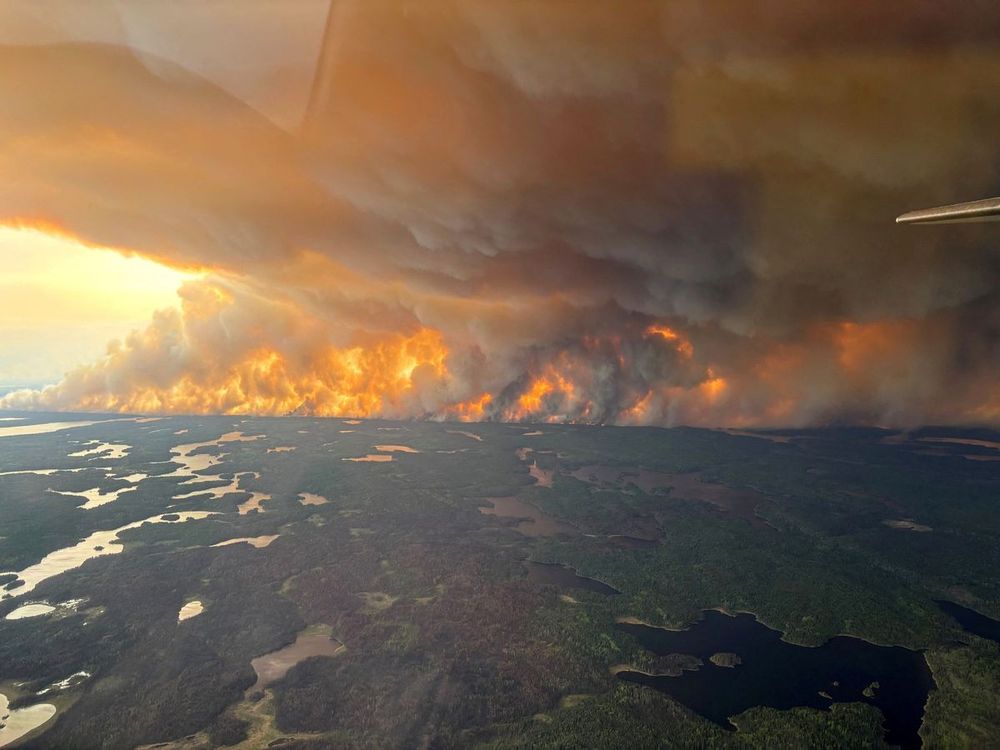
More than 212 active fires were burning as of Tuesday, according to the Canadian Interagency Forest Fire Centre.
04.06.2025 18:00 — 👍 89 🔁 39 💬 8 📌 9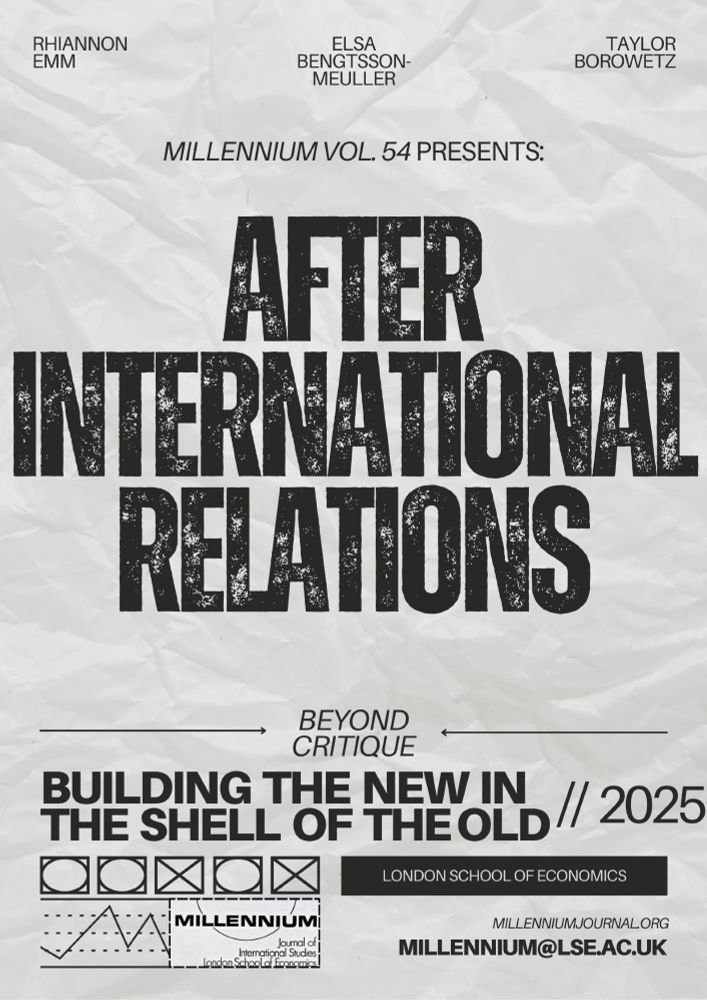
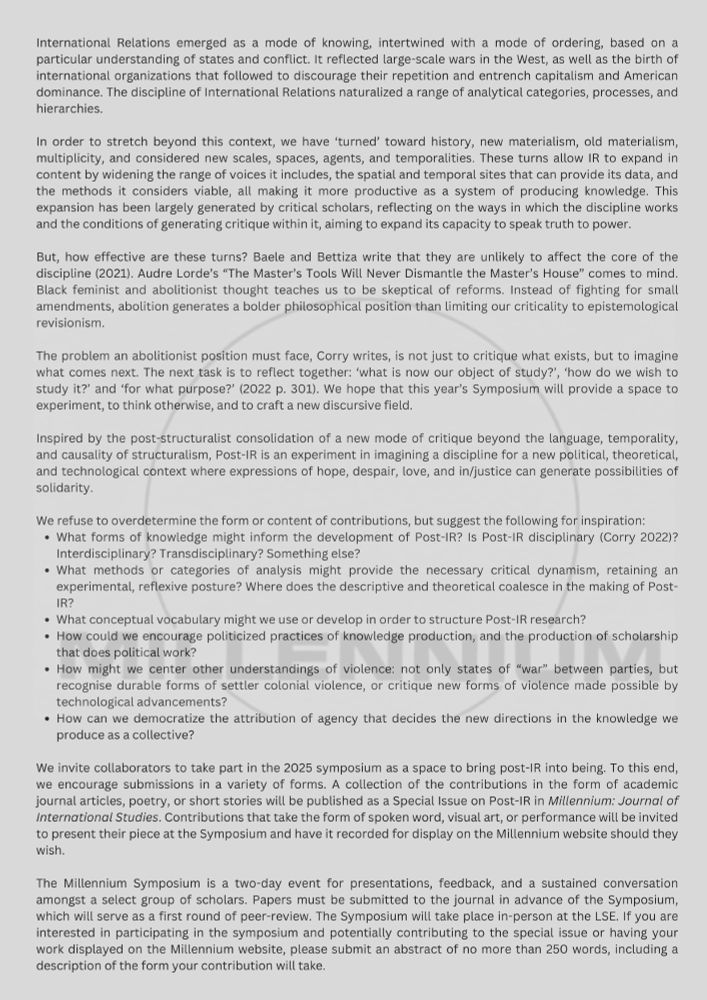
📣 Millennium is excited to announce the Vol. 54's Call for Abstracts for the 2025 Symposium! This year's theme is "After International Relations." We hope to engage with scholars from across the discipline and beyond. 🔗 Read the full call here ⤵️ millenniumjournal.org/call-for-abs...
21.05.2025 10:27 — 👍 7 🔁 7 💬 0 📌 3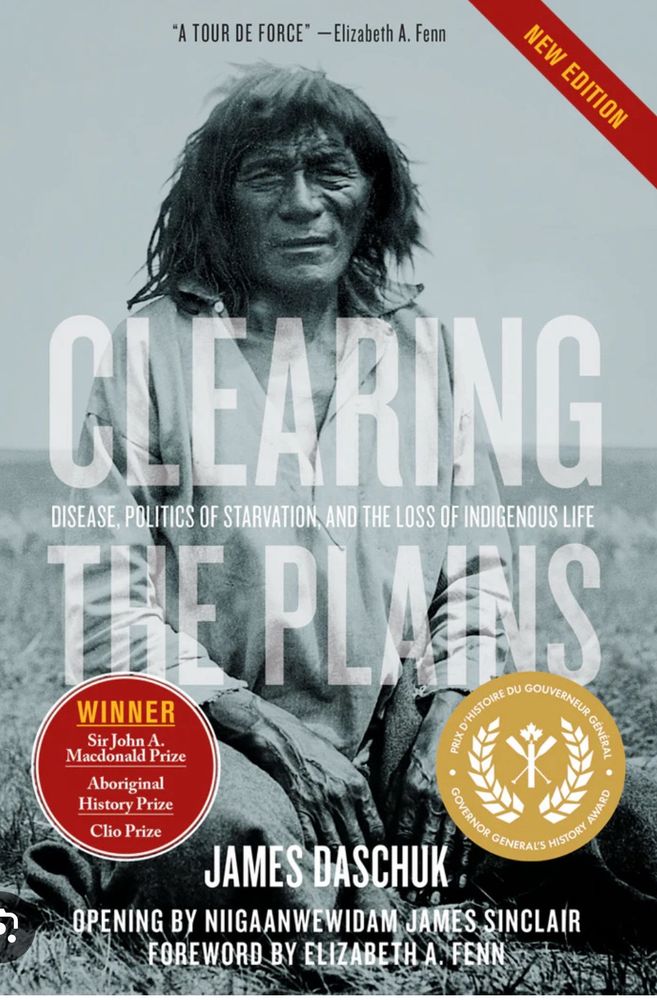
Book cover. CLEARING THE PLAINS: DISEASE, POLITICS OF STARVATION, AND THE LOSS OF INDIGENOUS LIFE. by JAMES DASCHUK. WINNER: Sir John A. Macdonald Prize, Aboriginal History Prize, Clio Prize. OPENING BY NIIGAANWEWIDAM JAMES SINCLAIR. FOREWORD BY ELIZABETH A. FENN.
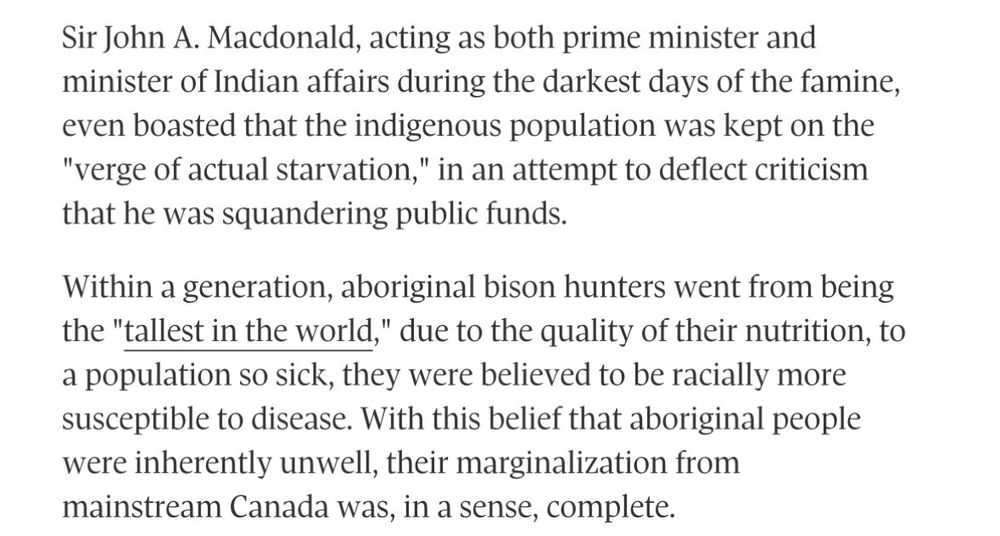
Sir John A. Macdonald, acting as both prime minister and minister of Indian affairs during the darkest days of the famine, even boasted that the indigenous population was kept on the "verge of actual starvation," in an attempt to deflect criticism that he was squandering public funds. Within a generation, aboriginal bison hunters went from being the "tallest in the world," due to the quality of their nutrition, to a population so sick, they were believed to be racially more susceptible to disease. With this belief that aboriginal people were inherently unwell, their marginalization from mainstream Canada was, in a sense, complete.
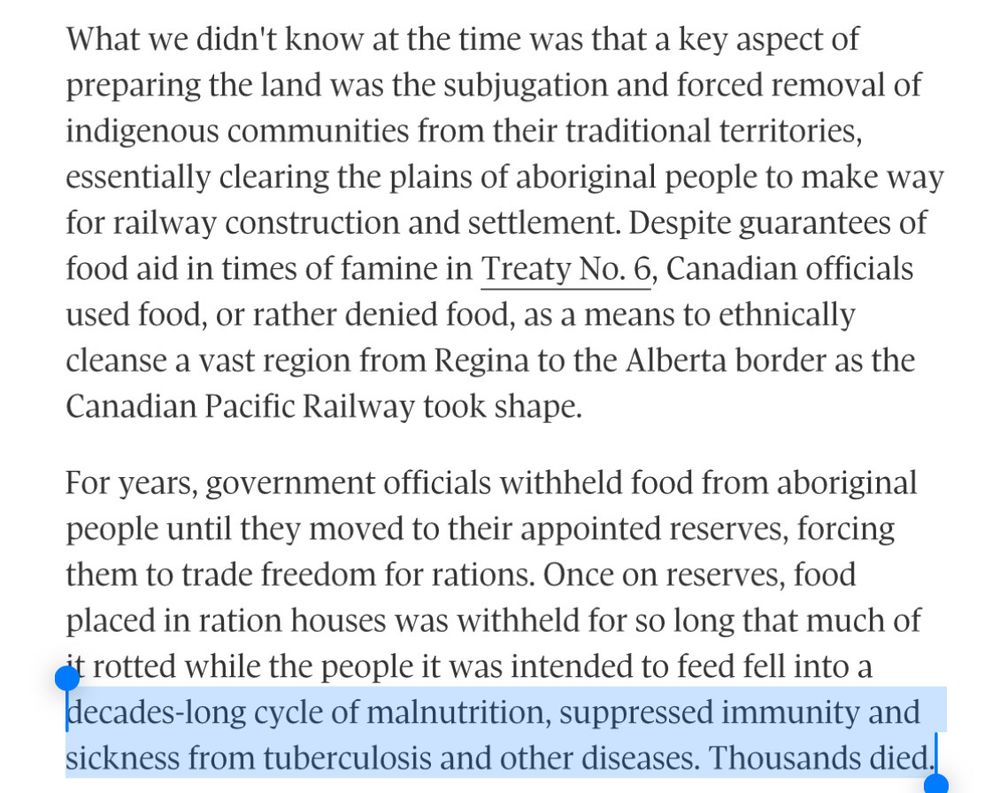
What we didn't know at the time was that a key aspect of preparing the land was the subjugation and forced removal of indigenous communities from their traditional territories, essentially clearing the plains of aboriginal people to make way for railway construction and settlement. Despite guarantees of food aid in times of famine in Treaty No. 6, Canadian officials used food, or rather denied food, as a means to ethnically cleanse a vast region from Regina to the Alberta border as the Canadian Pacific Railway took shape. For years, government officials withheld food from aboriginal people until they moved to their appointed reserves, forcing them to trade freedom for rations. Once on reserves, food placed in ration houses was withheld for so long that much of it rotted while the people it was intended to feed fell into a decades-long cycle of malnutrition, suppressed immunity and sickness from tuberculosis and other diseases. Thousands died.
Not so long ago. “Despite guarantees of food aid in times of famine in Treaty No. 6, Canadian officials used food, or rather denied food, as a means to ethnically cleanse a vast region from Regina to the Alberta border as the Canadian Pacific Railway took shape.”
18.05.2025 17:56 — 👍 9 🔁 3 💬 1 📌 0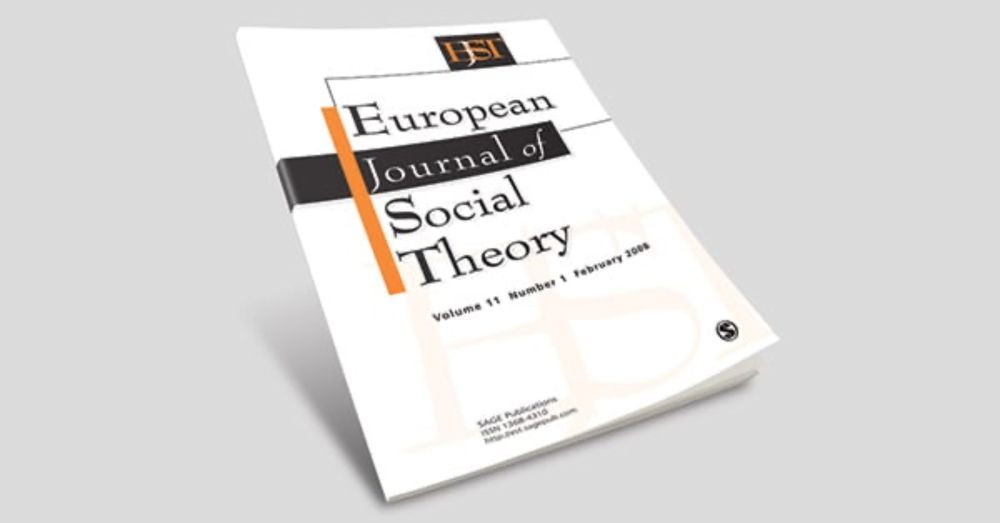
"In defence of maladaptation and its emancipatory promises" has just been published in the European Journal of Social Theory - a paper exploring the limits of adaptation and the promise of maladaptation. journals.sagepub.com/doi/10.1177/...
25.04.2025 09:06 — 👍 7 🔁 2 💬 0 📌 1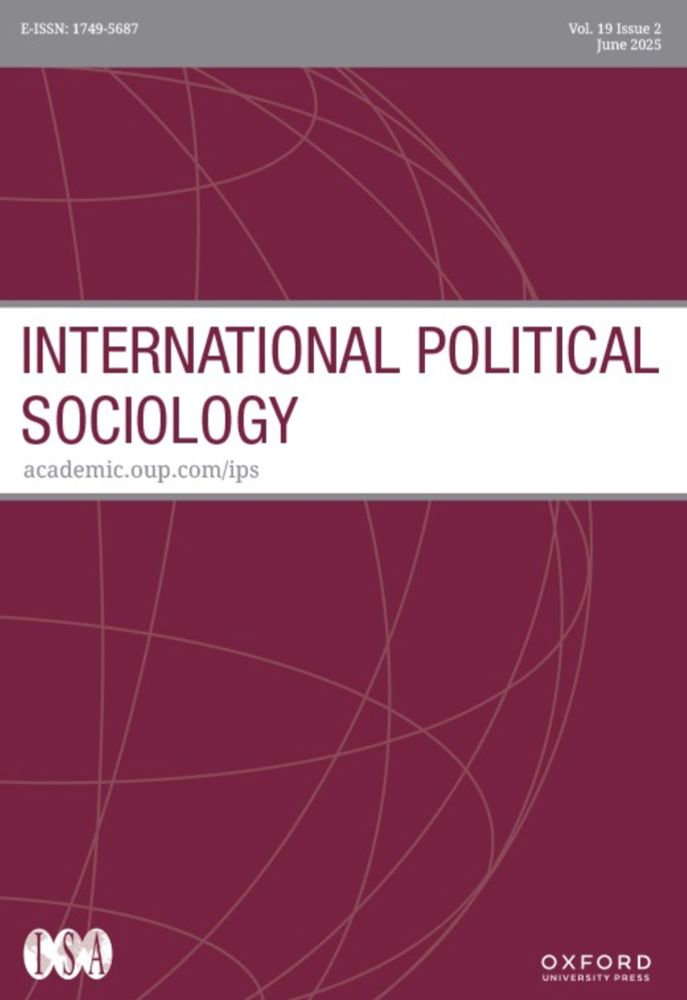
My new open-access article in International Political Sociology is about “visual politics”, a growing subfield of International Relations. It considers how visual politics is structured to ignore race and racism and why it shouldn’t. academic.oup.com/ips/article/...
22.04.2025 09:35 — 👍 17 🔁 10 💬 2 📌 2
📝 Out now from Vol. 53, Issue 2 is a new article "Privileged and Other Civilians: Hierarchies of Credibility, Security, and Compensation in Afghanistan and Iraq" by @christianew.bsky.social, Helyeh Doutaghi, Hijaab Yahya, Abdul Basir Yosufi, and Leah Wilson ⤵️ journals.sagepub.com/doi/10.1177/...
23.04.2025 12:28 — 👍 5 🔁 3 💬 0 📌 0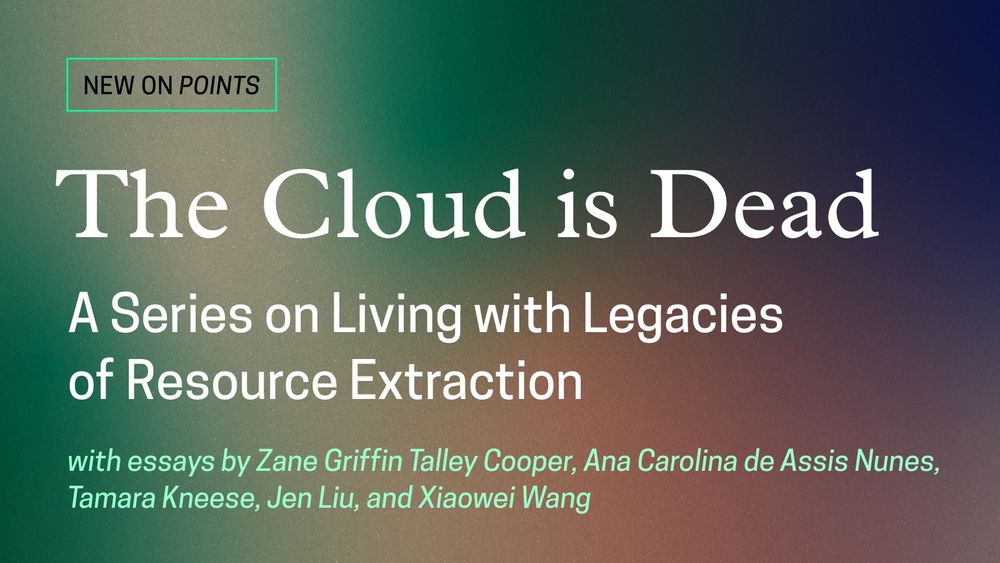
A green, blue, and yellow promotional graphic for the new Points series, “The Cloud is Dead: A Series on Living with Legacies of Resource Extraction,” with essays by Zane Griffin Talley Cooper, Ana Carolina de Assis Nunes, Tamara Kneese, Jen Liu, and Xiaowei Want.
It’s Earth Week! In this new series, members of our research network explore how communities have addressed the unequal power dynamics between tech production and deployment, and how tech impacts people’s everyday lives and the environment around them. datasociety.net/points/the-c...
21.04.2025 16:07 — 👍 26 🔁 19 💬 1 📌 1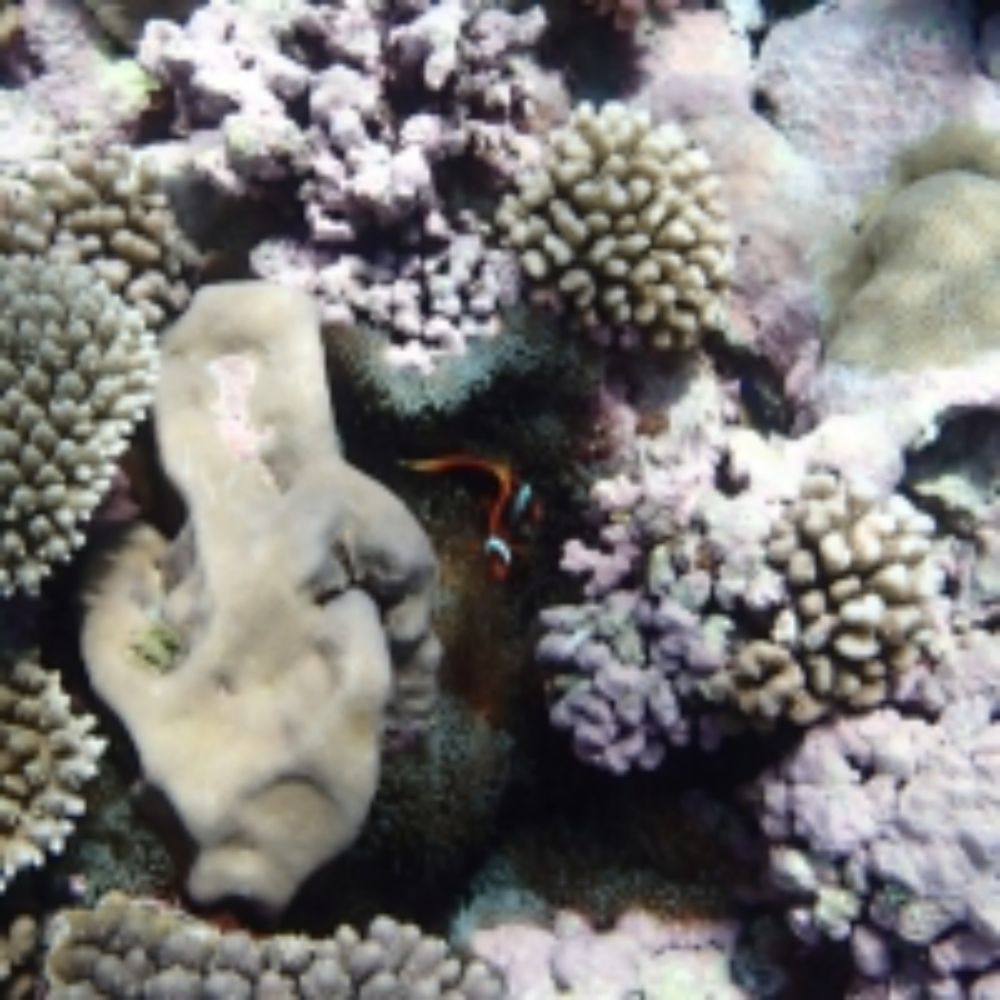
📚 Are you working in biodiversity conservation? This reading list is a starting point for non-Indigenous & settler folks to learn about colonial roots in conservation and why supporting Indigenous leadership is essential. Explore topics & resources to dive in: bit.ly/decolonizing... 🧪🦑🌍🦤
29.10.2024 17:14 — 👍 66 🔁 29 💬 1 📌 1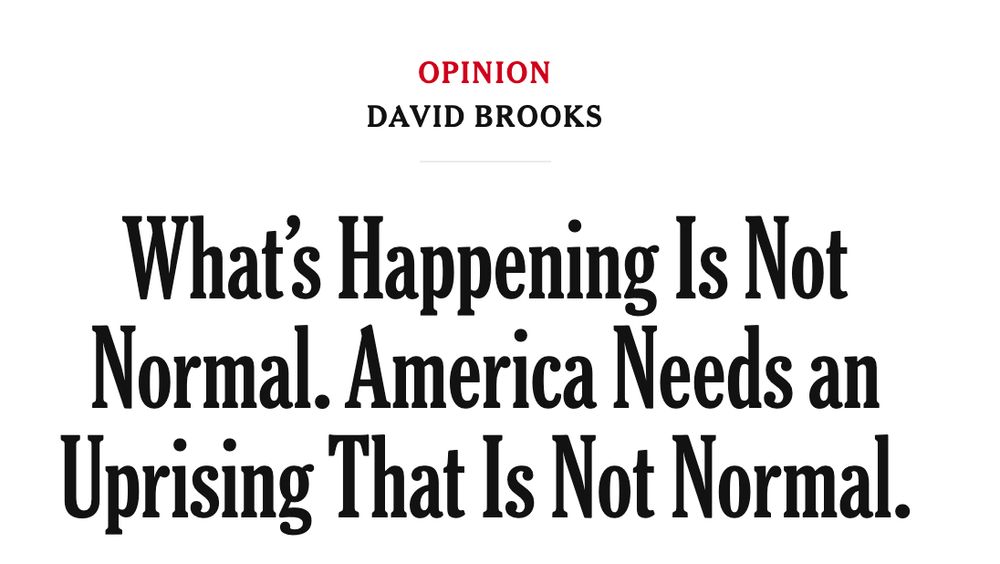
A screenshot from the New York Times, reading Opinion David Brooks What’s Happening Is Not Normal. America Needs an Uprising That Is Not Normal.
Centrists are beginning to call for an uprising against Donald Trump.
Yet they helped create this situation by working to suppress the powerful social movements of the past decade.
To involve enough people, any movement against Trump will have to address the material needs of the oppressed.
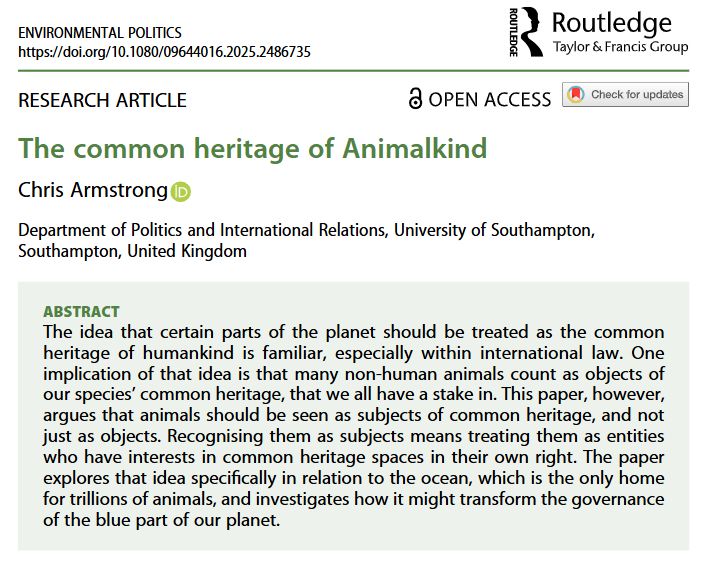
ABSTRACT The idea that certain parts of the planet should be treated as the common heritage of humankind is familiar, especially within international law. One implication of that idea is that many non-human animals count as objects of our species’ common heritage, that we all have a stake in. This paper, however, argues that animals should be seen as subjects of common heritage, and not just as objects. Recognising them as subjects means treating them as entities who have interests in common heritage spaces in their own right. The paper explores that idea specifically in relation to the ocean, which is the only home for trillions of animals, and investigates how it might transform the governance of the blue part of our planet.
Why shouldn't the ocean be considered the common heritage of the animals that actually live there, and not just the human beings who (mainly) don't? What would follow from this?
New article 'The common heritage of Animalkind' from Chris Armstrong.
doi.org/10.1080/0964...

Naomi Klein and Astra Taylor offer hope through understanding, allowing us to counter their narratives with a far better story. @naomiaklein.bsky.social @astra.bsky.social
15.04.2025 19:25 — 👍 173 🔁 63 💬 4 📌 2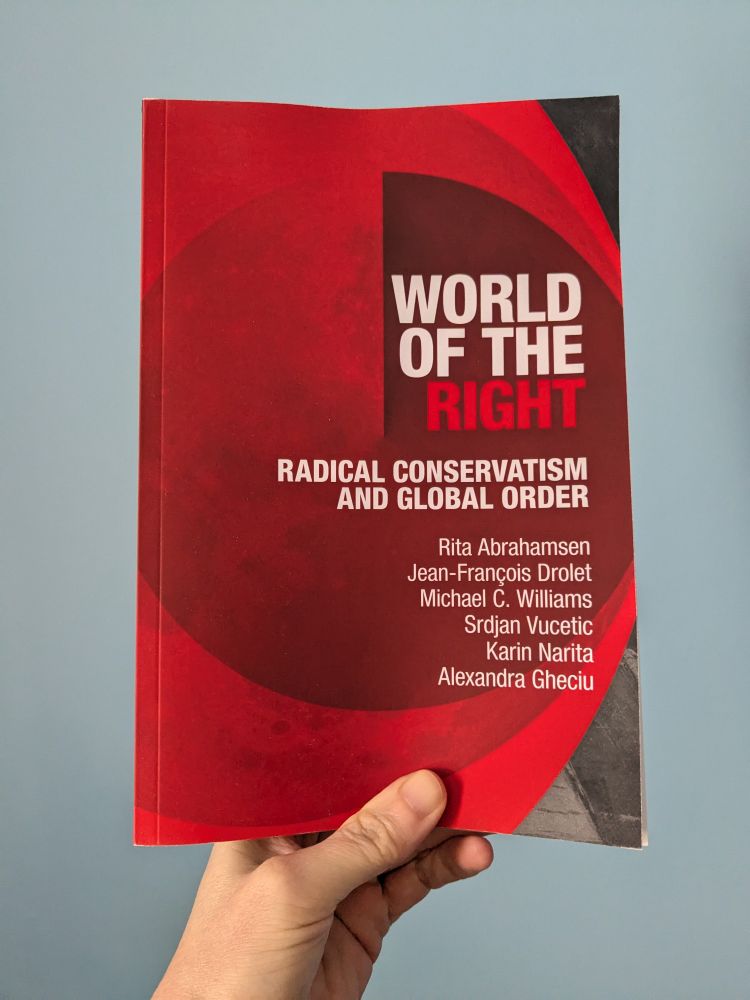
A paperback book with a cover in shades of red showing the title 'World of the Right: Radical Conservativism and Global Order' and the list of co-authors Rita Abrahamsen, Jean-François Drolet, Michael C. Williams, Srdjan Vucetic, Karin Narita, Alexandra Gheciu.
It's here! After a great Q&A with the co-authors, and a particularly excellent and nourishing conversation with @rita-abrahamsen.bsky.social post event, this went straight to the top of my tbr.
Important work examining the radical Right as a global phenomenon.
#AcademicSky
💙📚💡

📝 This new article from Vol. 53, Issue 2 by
@ijreynolds.bsky.social interrogates the link between speed and warfare in American military thought. Read "Speed and War in US Military Thought: Mapping the Conditions for AI–Enabled Decision-Making" below ⤵️ journals.sagepub.com/doi/abs/10.1...
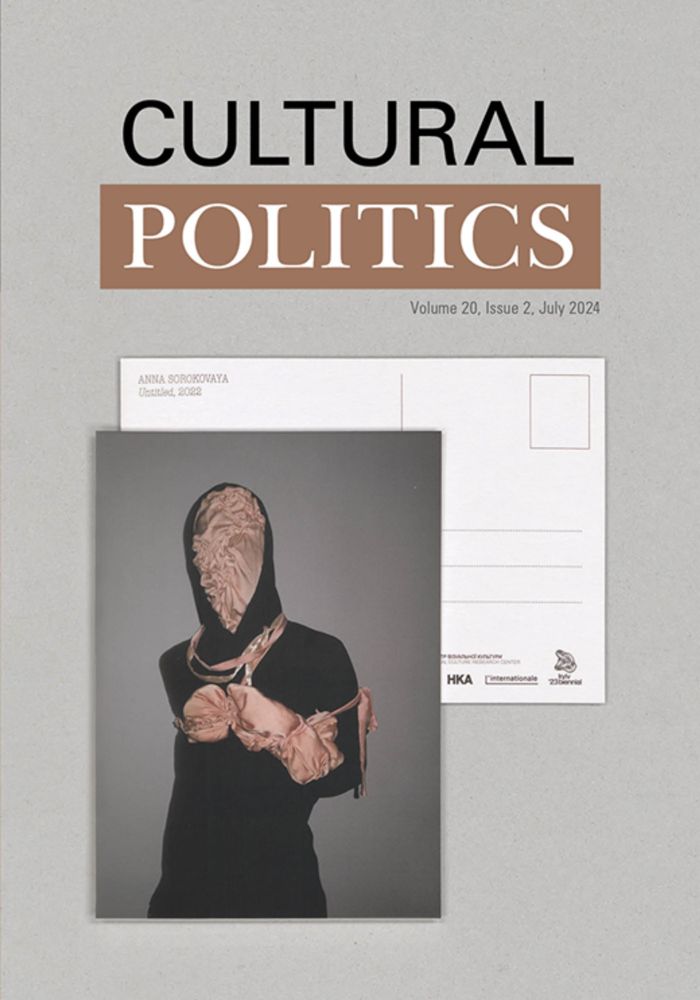
Article out in Cultural Politics if anyone wants to read
read.dukeupress.edu/cultural-pol...
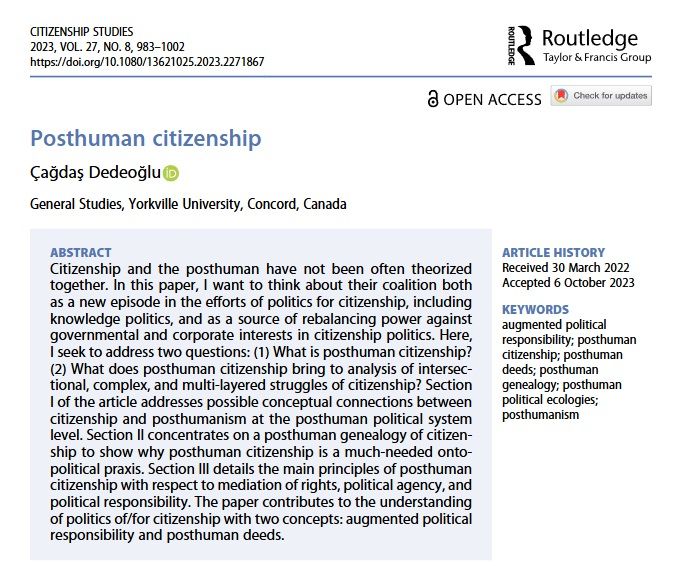
The abstract of the article "Posthuman citizenship"
İnsan ötesi yurttaşlık kavramı çerçevesinde posthümanizmin imkanlarını ve politik alternatifleri konuştuğumuz podcastin kaydına open.spotify.com/episode/2Tg4... linkinden ulaşabilirsiniz.
"Posthuman citizenship" başlıklı makalem ise www.tandfonline.com/doi/full/10.... linkinde açık erişimde.
#Eco-anarchy anyone?
In Francisco J. Toro's "Stateless Environmentalism," Toro looks at the contributions of eco-anarchists in promoting a "non-statist balanced and fair relationship between societies and nature."
From Vol. 20 No. 2: "Anarchist Geographies and the Epistemologies of the State"
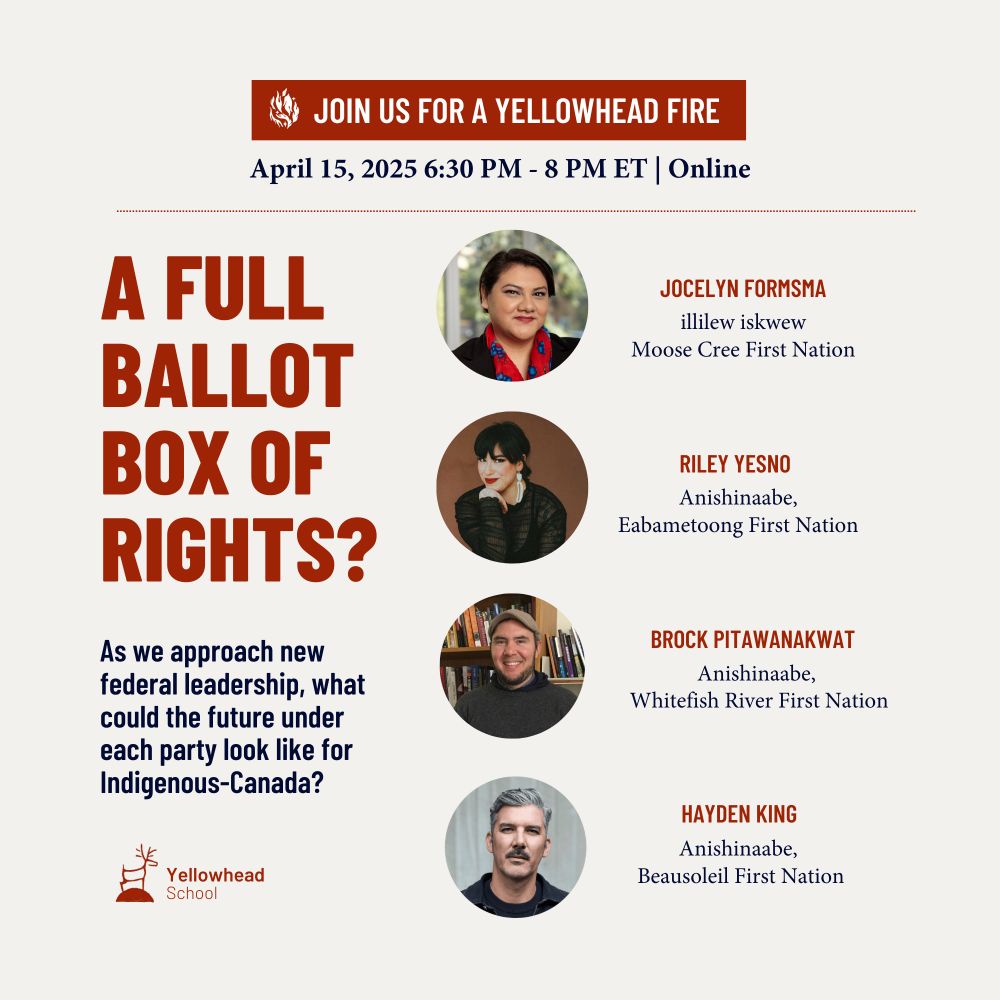
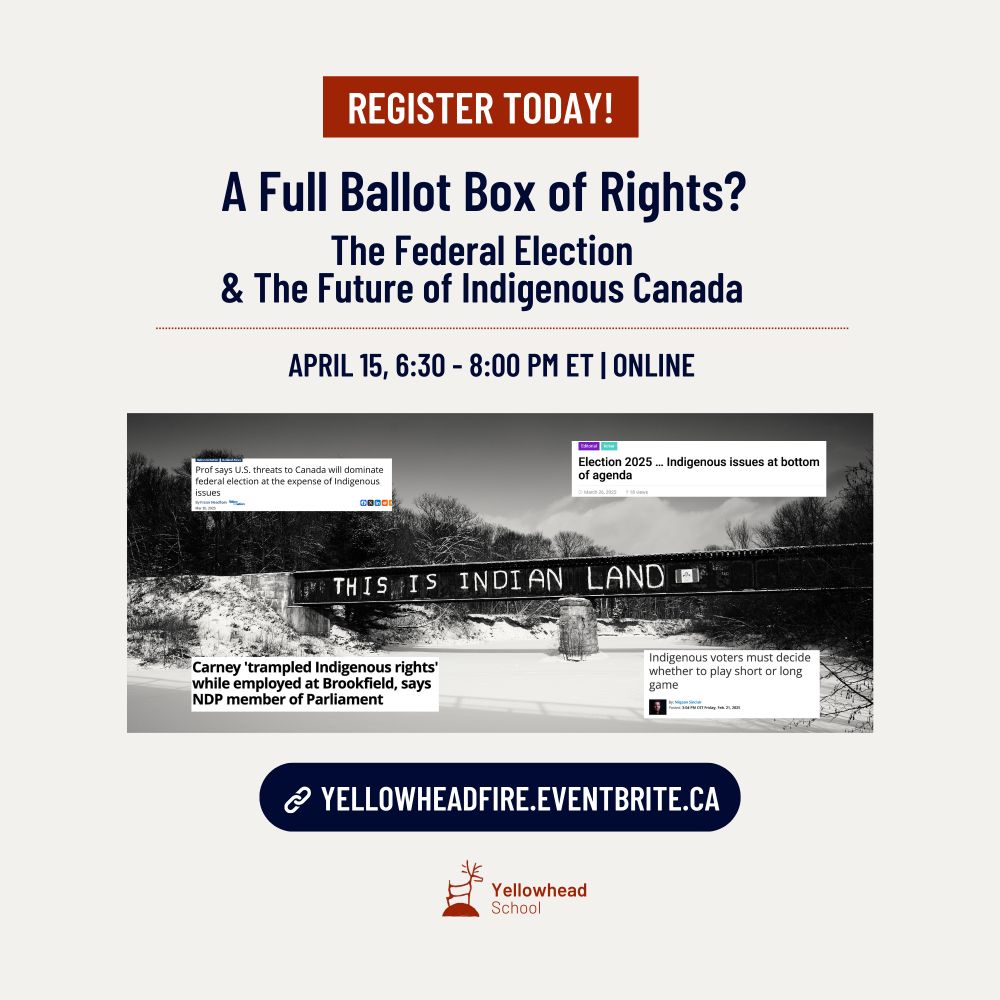
Join us on April 15th for a Yellowhead fire the upcoming federal election. As we approach a new federal leadership, what could the future look like for Indigenous-Canada? Register: yellowheadfire.eventbrite.ca
08.04.2025 19:13 — 👍 5 🔁 3 💬 0 📌 1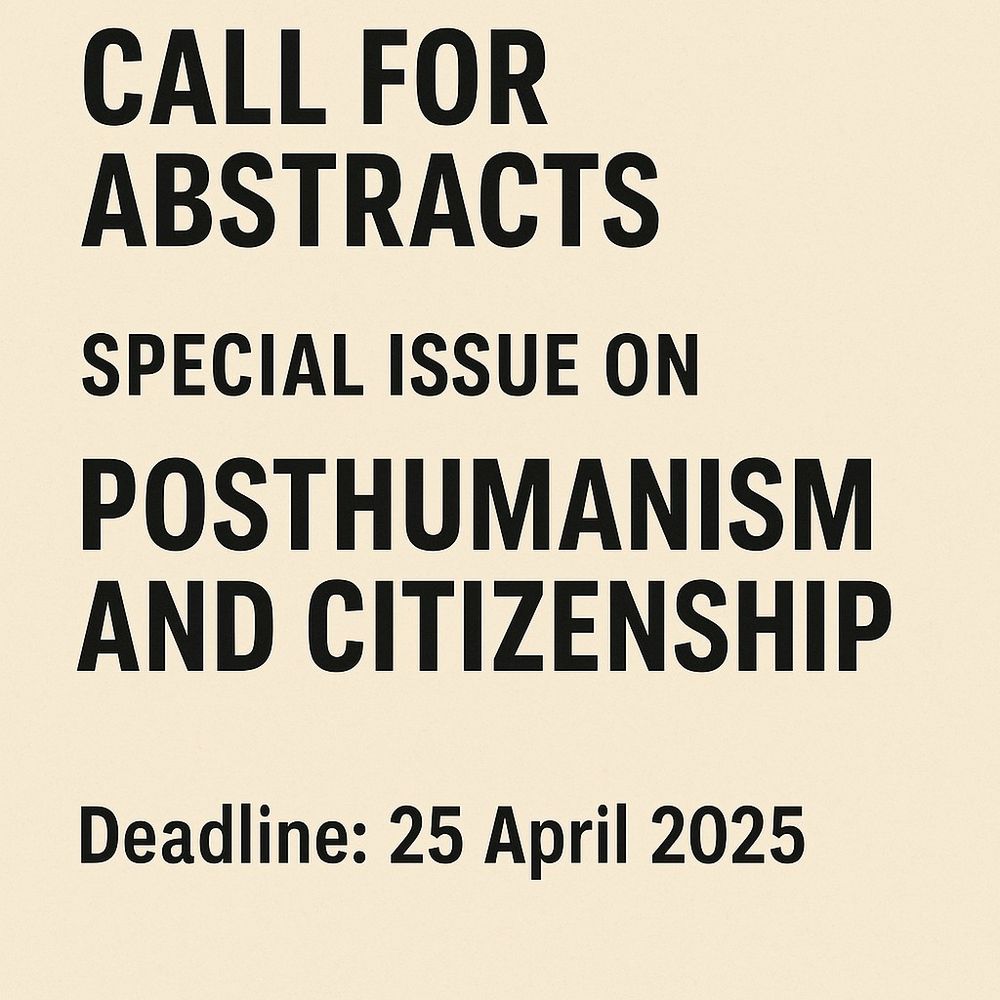
The poster for Call for abstracts for a special issue on posthumanism and citizenship. Deadline: 25 April 2025
📢 Call for Abstracts
I invite you to submit an abstract for consideration in a special issue proposal of Citizenship Studies, tentatively titled “Posthumanism and Citizenship.”
Deadline: 25 April 2025
For details: www.posthumanlab.org/cfa-citizens...
#posthumanism #citizenship